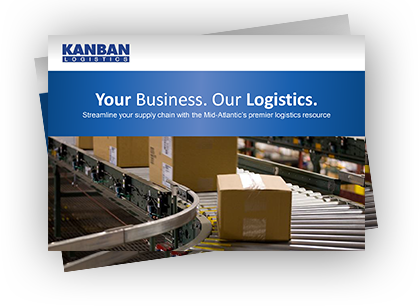For more than 40 years, we have spoken to a steady stream of companies about their warehousing needs. The word that comes up maybe more than any other is FLEXIBILITY. People want a flexible warehouse, and they define that in many different ways.
Basically, they want a warehousing solution that can adapt to changes in their business. Perhaps the business is highly seasonal, or they run promotions that may spike volume 4 and 5 times what is normal for a very short time.
Have you heard the phrase “Don’t build the church for Easter Sunday?” Well, when it comes to product demand, companies want to be able to accommodate all the “Easter Sunday churchgoers” without having to pay the cost of building a permanent capability. They want to rent, not build. It’s a tough thing to do if you’re actually running a church. But it’s actually quite easy if you’re storing and processing inventory.
Many third-party logistics providers (3PLs) cater to companies that require a high level of flexibility. In 2025, this flexibility is even more crucial as e-commerce, market fluctuations, and supply chain disruptions have become more common, requiring adaptive warehousing strategies.
How can you find a truly flexible warehouse partner? The following are some questions to ask.
Can I Pay Only for the Space I Use?
The classic public warehousing company will charge you for space used by the month. That will include a storage charge and the inbound and outbound handling charge for that given month. Think about how a parking meter works: You pay only for the time and space you need. Different 3PLs may pro-rate your charges if you come in or leave mid-month. Any way you look at it, public warehousing offers great flexibility.
Some 3PL providers don’t like the unpredictability of accounts with frequent volume spikes, so they require customers to contract for a longer timeframe.
Look for warehouses that offer digital inventory tracking and dynamic pricing models, which are now available through many technology-enabled 3PLs. These innovations allow real-time adjustments to your costs as your space needs change.
Can I Pay Only for the Services I Use?
Aside from the cost of your inventory, labor is your biggest warehouse expense. You want a warehouse partner that is very adept at managing a flexible labor solution. Two things you should look for:
- Cross-trained staff. Public warehouses typically serve many customers in the same warehouse or within their network of warehouse facilities. These customers can have differing order activity at different times of the day or week or month. So, when one account is slow, another is busy. You want to make sure your provider has cross-trained associates so that experienced associates can be “borrowed” from other accounts to avoid the need for outside temp labor.
- Temporary labor. Speaking of temps, they are a very economical way to handle volume spikes on a short-term basis. Look for a 3PL that has experience and a clear process for working with a temporary agency. A poor temp solution can actually cost you MORE money – inaccurate orders, poor productivity – if inexperienced workers are recruited and thrown on the line with little training.
Can You Handle Value-Added Services?
Lots of things can be done in a warehouse that are not “typical” warehouse duties. Special packaging, labeling, combining separate products into a new “kit,” repairing, inserting a customized note into the box… The list goes on.
Every provider you ask will tell you they can handle these flexible warehouse activities, but you want to see clear evidence. Have them show you, in real time, how they handle value-added supply chain services.
The last thing you want to do is send products outside the facility, incurring high freight costs and inflated and unnecessary labor costs.
Can You Handle B2C Fulfillment?
Moving pallets in and out of a warehouse is vastly different than picking and packing individual orders for online commerce. Don’t assume a warehouse partner can serve all your sales channels. If your requirements include B2C fulfillment warehouse services, look for evidence that the 3PL has the systems and demonstrated processes to efficiently process these direct-to-consumer orders.
Many warehouses now integrate directly with e-commerce platforms and provide same-day shipping capabilities, giving you a competitive edge.
A Flexible Warehouse Allows Costs to Parallel Revenue
Many businesses cannot predict demand. Rather than invest significant capital to build an infrastructure that may go unused, companies “rent” space and services from a flexible public warehouse provider. This gives them a variable cost model where distribution costs parallel their revenue stream – a financially sound and flexible warehouse solution.
In 2025, this model has been further enhanced with cloud-based warehouse management systems (WMS) and predictive analytics, allowing companies to anticipate demand surges and optimize their use of space and labor.
Contact Kanban Logistics today to learn more about our flexible warehousing solutions on the East Coast.
Never Miss a Blog Post
Join our email list to receive new posts in your inbox. We will never spam you. Opt out anytime.
Blog Post Categories
- Outsourcing 3PL (72)
- Warehousing (72)
- North Carolina (52)
- east coast logistics (47)
- manufacturing logistics (26)
- Food Logistics (19)
- Fulfillment (18)
- CSX Carolina Connector (17)
- Miscellaneous (14)
- Free Trade Zone (FTZ) (12)
- FTZ / Free Trade Zones (11)
- Intermodal (11)
- Rail Siding (11)
- Port of Virginia (10)
- Cross Docking (7)
- Kitting (5)
- Aerospace (3)
- Pharmaceutical (3)
- Kanban News (2)
- QVC Rework Services (2)
- COO (1)
- container yard services (1)
- flexible (1)
- operations (1)
- scale (1)
- scott freeman (1)






